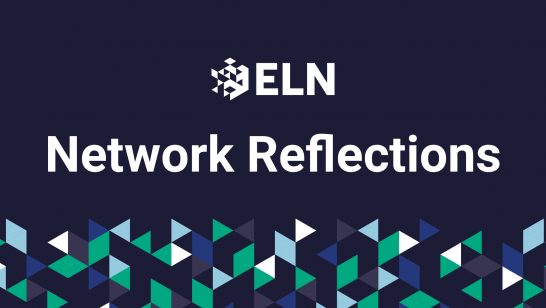
The Nuclear Suppliers Group (NSG) are 48 states that have committed to following a set of rules, known as the NSG Guidelines, when exporting nuclear and dual-use items. Their ambition to prevent the proliferation of nuclear weapons was born from India’s first nuclear weapon test in 1974. With its first meeting taking place in London, the Group earned the nickname ‘the London Club’.
Today, the NSG is facing challenges in ensuring the peaceful nature of nuclear trade. Ahead of the NSG Plenary in Buenos Aires starting on 10 July 2023, Participating Governments should consider how enhancing the Group’s transparency and outreach to third countries can help them address these challenges.
Universalising nuclear export controls
Many states outside of the NSG have the capability to export items and technology that could be used in a nuclear weapons programme. However, admitting additional states to the NSG complicates decision-making by consensus. In recent years, amending the Guidelines and control lists has become difficult with rising tensions between some Participating Governments.
Moreover, most states outside the NSG are smaller, non-exporting countries. Their role in the transhipment of sensitive items makes them key players in nuclear trade, as illustrated by the Khan network, which reportedly used over 30 shipping points to divert items and technology to nuclear weapons programmes in Libya and North Korea. However, most of these states have neither the resources for nor the interest in becoming Participating Governments.
Universalising nuclear export controls must be achieved by expanding voluntary adherence to the Guidelines. Louis Reitmann
Therefore, universalising nuclear export controls must be achieved by expanding voluntary adherence to the Guidelines, not the number of Participating Governments.
Long-standing image problem
Ongoing efforts to undermine confidence in export controls acutely challenge the NSG’s legitimacy: UN General Assembly Resolution 76/234, launched by China and supported by Russia, claims a dichotomy between export controls and development that is easily disproved. For example, in 2020, denied exports made up only 0.03% of total exports from the EU Member States, all of which participate in the NSG.
Beijing and Moscow use such disinformation to weaken international acceptance of Western controls in response to China’s military-civil fusion strategy and Russia’s invasion of Ukraine. Despite the untenability of these claims, they are harmful to the NSG because of its long-standing image problem. It has historically been perceived as a closed group of industrialised countries by the Global South. Common misperceptions include that the Guidelines give preferential treatment to Participating Governments, or that export denials have discriminatory motives.
A weaker standing with developing countries, many of which have yet to adopt or implement effective nuclear export controls, threatens the NSG’s goal of universal adherence to the Guidelines at a time when many developing countries are planning to expand their use of nuclear technologies.
Looking towards transparency and outreach
Previous proposals to make the NSG more open and engaging have been met with both staunch and unsubstantiated resistance from a handful of states. Some may argue that because of the frosty relations between the West and Russia, which prevented the adoption of a Plenary statement in 2022, any measures beyond business as usual must be postponed to preserve the regime. In fact, the opposite is true. In the face of harmful disinformation, inaction on transparency and stakeholder engagement is not a solution but only adds to the problem.
Ahead of the NSG Plenary in July 2023, Participating Governments should consider the following options for enhancing transparency and outreach. All would help improve relations with third countries and facilitate adherence to the Guidelines at minimal downside risk. Resistance, especially from China and Russia, should be expected. However, several measures can be implemented by coalitions of states, without consensus. If championed by influential states, they may become de facto Group-wide.
Listing third countries that adhere to the Guidelines
Announcements of states’ adherence are published individually in the IAEA’s INFCIRC series but cannot be found easily. Searches in the INFCIRC online archive produce incomplete results.
Publishing a complete list on the NSG website would provide a fuller picture of the global adoption of nuclear export controls. It would also make it easier for states considering adhering to the Guidelines to consult with partner countries that already do so. Especially those with reservations about the NSG may be more responsive to hearing about their peers’ experiences. To support this, Participating Governments could facilitate exchanges or peer-to-peer training between states adhering to and not yet adhering to the Guidelines.
Upgrading communications materials
The NSG has created some useful resources, including a website, video, and brochure, but it should deliver its messages in a more accessible, engaging, and tailored way.
For example, the NSG’s annual publication INFCIRC/539 is 12 pages long and includes a chronology of its development, using big paragraphs and clunky language. It doesn’t present the information most relevant for third countries in a digestible format, nor does it signal interest in engaging with stakeholders. The occasional updates to INFCIRC/539 are minimal, so stakeholders have no incentive to read future revisions.
The NSG should produce materials that are more tailored to the interests of its audiences (third countries, industry, civil society). It already publishes language that responds to common criticism and misinformation about the NSG, e.g. around transparency or licensing decisions. However, buried in INFCIRC/539, this is ineffective.
Expanding outreach by the NSG Chair
The NSG should expand outreach to third countries by the NSG Chair. In particular, the Chair should convene events to provide information beyond what is available on the NSG website, e.g. about the experiences of third countries adhering to the Guidelines.
Occasions when relevant officials come together, such as the IAEA General Conference, are excellent opportunities for the Chair to conduct targeted outreach, meeting third countries to promote adherence, and nurture relations with adherents to the Guidelines. Safeguards universalisation efforts show that outreach at General Conferences can trigger progress, especially where national delegations include ministers. The NSG should build on positive examples like the nuclear export controls-themed side events at the 9th and 10th NPT Review Conferences.
Offering resources on adherence to the Guidelines
As proposed in the 2015 Plenary statement, the Group should take a more accommodating and promotional approach to adherence. While the NSG website and INFCIRC/539 provide basic information about adherence, the Group could do more to encourage and facilitate it by:
- Providing a template for the letter which states have to send to the IAEA Director General for publication in the INFCIRC series if they decide to adhere to the Guidelines;
- Underlining the attractiveness of adherence for smaller, non-exporting states as a way to meet their obligations under UNSCR 1540;
- Giving detailed information about the requirements and implications of adherence, including legislative and administrative changes;
- Informing about available nuclear export control training and assistance.
These materials would help the NSG Chair to conduct more effective outreach. The IAEA uses similar materials to promote amendment and recissions of outdated Small Quantities Protocols, e.g. a template decision letter and implementation guide.
Publishing an agenda and national statements at Plenary sessions
Publishing Plenary agendas and national statements would underline that nuclear export controls are a global public good, discussions to which all states should have some access. Offering insights into the NSG’s priority issues and debates would help states adhering to the Guidelines better understand how the controls they implement and the regime at large are developing.
Crucially, this is a way for the NSG to more effectively dispel the narrative of being an opaque club of developed countries wanting to restrict access to nuclear energy in the Global South. Publishing national statements would show that Participating Governments have no such intentions, that views within the NSG are diverse, and that facilitating the peaceful use of nuclear energy and technologies is a core objective for all participants, especially for G77 members within the NSG like Brazil, Argentina, and South Africa.
Publishing prepared statements without opening meetings to outsiders also preserves confidentiality, which the NSG says enables frank discussions among states.
Announcing when NSG bodies meet
Making the meeting dates of the Plenary, Consultative Group, Licensing and Enforcement Experts Meeting, and the Technical Experts Group available on the NSG website would allow stakeholders, including adherents and other third countries as well as experts, to provide Participating Governments with timely input for national proposals.
A starting point
Over the decades, the NSG has made a key contribution to global security. Now including members like China, South Africa, and Mexico, it has come a long way since the days of ‘the London Club’. However, it has been neither ambitious nor effective in communicating this to an audience that, with globalised nuclear supply chains, is increasingly important to its success – non-nuclear suppliers in the Global South.
The NSG has made a key contribution to global security, but it has been neither ambitious nor effective in communicating this to an audience that is increasingly important to its success – non-nuclear suppliers in the Global South. Louis Reitmann
Considering how the NSG could do better on transparency and outreach is not about eroding the principles by which the Group works; it is about preserving its achievements to date and fulfilling its mission of universalising nuclear export controls. The above suggestions are a realistic, pragmatic starting point for this.
The opinions articulated above represent the views of the author(s) and do not necessarily reflect the position of the European Leadership Network or any of its members. The ELN’s aim is to encourage debates that will help develop Europe’s capacity to address the pressing foreign, defence, and security policy challenges of our time.
Image: pxfuel



